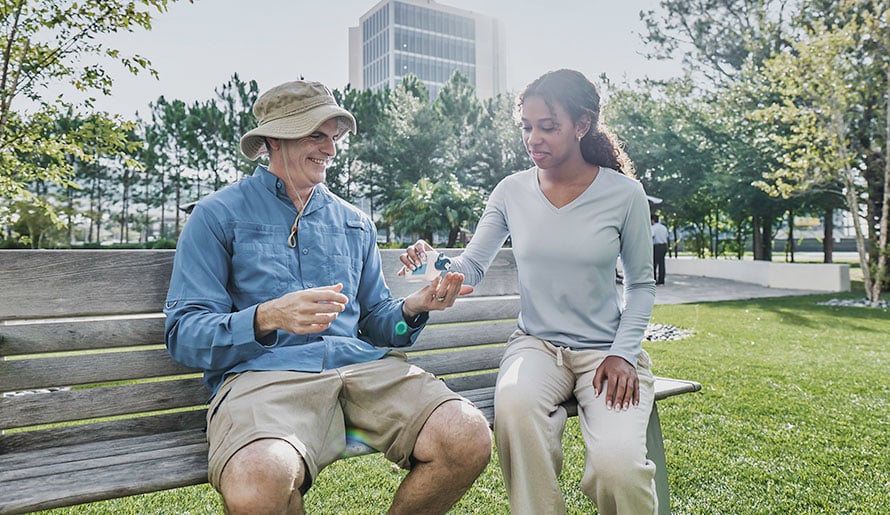What Are the Risks of Developing Skin Cancer During the Winter?

Like many people, you’re probably aware that exposure to ultraviolet (UV) radiation from the sun is the number one cause of skin cancer. Basal cell carcinoma, squamous cell carcinoma and melanoma are collectively the most common types of cancer in the U.S. However, these conditions are often preventable.
You've probably already developed the positive habit of slathering on sunscreen before you head outdoors in the summertime. But, maybe you aren't quite as vigilant when it's cool or cloudy outside, or when the seasons change and the earth's atmosphere blocks some of the sun's harmful rays. This is a potentially harmful mistake.
Contact us today to schedule an appointment. Call 1-888-663-3488 or request an appointment online.
Can the winter sun cause skin cancer?
The truth is, the sun produces harmful UV rays all year round – even on cloudy days and during cold winter months. Plus, some studies have identified an effect known as cloud enhancement of UV radiation, in which the sun’s rays are reflected in the clouds and, as a result, become amplified and even more dangerous. Also, some winter activities such as skiing take place at high altitudes where the sun's UV rays are more intense, the thinner atmosphere is less effective at blocking them, and the snow reflects and magnifies them. All of these factors can increase your risk of developing skin cancer during the winter.
How to protect yourself from skin cancer year round
The oncologists in the Cutaneous Oncology Program at Moffitt Cancer Center encourage everyone to protect themselves from developing skin cancer every day – regardless of the weather or the season. Here are the best ways to do so:
- Choose a broad spectrum, water-resistant sunscreen that has a sun protection factor (SPF) of 30 or higher
- Apply sunscreen liberally to all areas of exposed skin at least 30 minutes prior to going outside
- Reapply sunscreen at least every two hours and immediately after swimming or sweating
- Be especially careful to protect highly vulnerable and sensitive areas of your body, such as your face, ears and hands (consider wearing a wide-brimmed hat or applying zinc oxide for extra protection)
If you'd like to receive individualized advice and guidance on how to protect yourself from skin cancer, you can request an appointment at Moffitt by calling 1-888-663-3488 or completing our new patient registration form online. No referrals are necessary.
